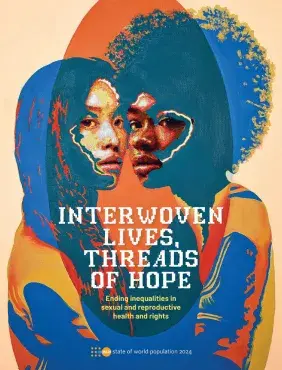Sweeping global gains in sexual and reproductive health and rights over the last thirty years are marred by an ugly truth – millions of women and girls have not benefited because of who they are or where they were born.
Entitled “Interwoven Lives, Threads of Hope: Ending inequalities in sexual and reproductive health and rights”, the report highlights the role racism, sexism and other forms of discrimination continue to play in blocking broad gains in sexual and reproductive health for women and girls. The data is damning. Women and girls who are impoverished, belong to ethnic, racial and indigenous minority groups, or are trapped in conflict settings, are more likely to die or experience health related complications because they lack access to timely health care.
The statistics are shocking: according to the SWOP 2024 report over half of all preventable maternal deaths are estimated to occur in countries with humanitarian crises and conflicts – that’s nearly 500 deaths per day. Women with disabilities are up to 10 times more likely to experience gender-based violence than their peers without disabilities.
2024 marks the thirtieth anniversary of the International Conference on Population and Development (ICPD), held in Cairo – a landmark moment in which 179 governments committed to placing sexual and reproductive health and rights at the core of sustainable development.


